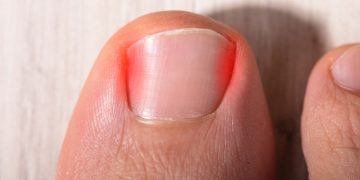You have counted sheeps, tried counting 1000 backwards, and made all the best efforts you can to put yourself to sleep, but nothing seems to work. You are still wide awake all night long and started to feel like “I don’t really need to sleep”.
If it makes you feel any better, more than one-third of people in North America and Europe suffer from insomnia or sleep disorder of some kind. If you are spending your days yawning and tired while staring at your mobile phone all day long, then you are not alone. Good thing is you can very well come out of your problem once you start to put in some effort in the right direction. Read on to know more.
What causes Insomnia
Insomnia has been studied and researched on extensively over the years, however, it is still a mysterious sleep disorder. Many sleep experts still feel the heat of frustration because of not being effectively able to help many of the patients who come to them.
Insomnia can be caused due to anything. In fact, anything can lead to insomnia. Some of the common causes of the condition are as follows.
- Poor sleep habits
- Too much caffeine intake
- Depression
- Anxiety
- Certain medications
- Restless leg syndrome
- Alcohol
- Drugs
- Mobile addiction
What are At Home Remedies for Insomnia
After multiple nights of not sleeping, many insomniacs get to bed with a sense of fear. It is the fear they have developed over the period of time of not being able to put themselves to sleep. This can put them in a complex situation, where the fear of not sleeping actually starts to keep you wide awake.
This type of insomnia can last weeks, months, or even years to clear up. Tips that follow were designed specifically to break out of this cycle and put your insomnia to sleep before it gets more complex to solve. These simple ways will put you on track to better sleep-starting tonight.
Don’t abuse and torture yourself
When you can’t sleep, don’t just keep tossing and turning yourself. This can only add up more frustration. Try to get up and read a book, a magazine, watch television, or do something that relaxes you. Even without sleep, you can lie down comfortably in the bed all night long. Though this doesn’t relax your brain, it gives your body sufficient rest and helps it to recover like you have slept the whole night. Though it is not as good as peaceful sleep, it is still better than staring at the ceiling and the clock the entire night.
Don’t nap during the day
One of the must follow the rule for insomniacs is, don’t nap during the day. This will put you in trouble while trying to sleep at night. This will make you continue the cycle of sleepless nights. Try to pull yourself up early in the morning and drag yourself throughout the day and get to bed in the night. This way your body will starve for sleep, making you fall asleep fast at night.
Don’t worry too much
The more you worry, the more it gets harder for you to sleep. For example, sometimes you might wake up in the middle of the night and you feel so fresh and wide awake, you think you are done with the night’s sleep. This is not the case. You feel so wide awake because you have woken up from your REM stage sleep. REM sleep is when you start to dream. At this point in the sleep cycle, your brain will be very alert and active. Just don’t worry, relax, and hang on to it for about another 25 to 30 mins. You will most likely fall back to sleep pretty easily again.
Block out the noise
Many times you might not be so sure about what woke you up. You just know that you are awake again. If you live in the vicinity of an Airport, Railway track, or a busy freeway, this could be your problem behind those sleepless nights. Try to cut down ambient noise as much as possible in your bedroom. If you cannot, then try a night pair of earplugs.
Check if your bed is comfortable enough
An uncomfortable mattress can keep you awake at night and you won’t even recognize it. If your mattress is too hard, try to invest in one that is soft and more forgiving. Softer mattresses are usually good for sleeping than the firm ones.
Soak yourself to sleep
Fill up your bathtub with warm water and soak yourself in it for 20 minutes around 2 hours before bedtime. This will help to relax your muscles, nerves, and get your body ready to sleep. Don’t soak yourself just before bedtime because the bath can temporarily stimulate you and delay your sleep.
Try to make the water as hot as possible. However, if you are pregnant or any other health problems avoid soaking in very hot water.
Alcohol is not the solution
Though a glass of liquor can make you feel all drowsy and put you to sleep. It is not a good idea for breaking your sleepless cycle. Alcohol can temporarily put you to sleep, but you have to pay for it dearly after. You will most likely wake up with a severe headache, upset stomach, or a full bladder. The rebound effect of alcohol will actually make it much harder to put you back to sleep again.
Limit or Stop caffeine intake
It is very obvious that caffeine intake can keep you up at night and disturb your night’s sleep. Some good sources of caffeine include tea, coffee, sugary beverages, soda, and most packaged drinks. If you cannot give up your coffee or tea, try to limit its intake and drink only during the morning hours. Never consume caffeine after 2.PM.
Let your bed do its job
Even animals always opt to sleep at the same spot every night. This is because, when you associate better with your sleeping location and spot, you will naturally fall asleep fast have a better sleep. Always try to sleep in your bed and your bed alone. Do not try to move to a couch, or a guest room bed to try to fall asleep.
Develop a healthy sleeping routine
Many sleep experts agree that sticking to a specific sleep schedule helps you to sleep better, and it is very crucial for insomniacs. It is the best idea to develop a sleeping routine for yourself where you sleep at a specific time in the night and rise at a specific time in the morning. This rule must be followed even on weekends and holidays.
When you develop this routine, your body will automatically get to sleep at the same time every single night. Resist the temptation to nap during the day time, and you will be all set to bid goodbye to your insomnia.
Use your bedroom only to sleep
Do not bring your laptops, TV sets, smartphones, iPads, and any other electronic gadgets to your bedroom. These gadgets can increase your anxiety levels in your bed. Your bedroom must only be used for sleeping and nothing else. Many sleep experts recommend keeping your bedroom as dark as possible during the night. This will signal your brain to secrete sleep hormones and comfortably puts you to sleep.
Make bedtime a ritual
Many parents use this trick on their kids. They read a bedtime story to their kids at night before putting them to sleep. This sends signals to the kid’s brain that its time to sleep and help him/her to sleep better at night. This type of ritualizing the bedtime process can also work with adults as well. The ritual could especially be of much help to insomniacs. You can take up any kind of ritual like meditation, reading a book, listening to relaxing music. Make sure to repeat the ritual every single night.
Try an old favorite trick
Still, in many countries in the east, people have the habit of drinking warm milk or malted milk before bed. Though a glass of milk will not make you feel drowsy, however, it can be comforting and help you get into the mood for sleep. It is kind of a ritual like what we mentioned before. Try the warm milk remedy if you are not lactose intolerant.
Check your medications
Certain prescription drugs can keep you awake at night. Drugs prescribed for asthma, breathing problems, thyroid problems, and other conditions may be the culprit behind your sleepless nights. Try to talk to your Doctor about your problem and ask for more information about your prescribed drugs.
Don’t try to sleep
Trying to fall asleep is an effort. Any effort is work, and work keeps your brain active and awake. The harder you try to sleep, the harder it gets. Relax, and let the sleep takeover without any effort from your side.
Cool yourself down
A warm bed, warm room, and increased body temperature will actually make it harder for you to sleep. Sleep experts suggest keeping your bedroom cooler than the rest of the other rooms in your home. A well air-conditioned room can help a lot in cooling your room and your bed.
Take a warm bath two hours before sleep. Though it will initially increase your body temperature, it drops back after a couple of hours, just in time for your bed. You can also try exercising six hours before sleep.








